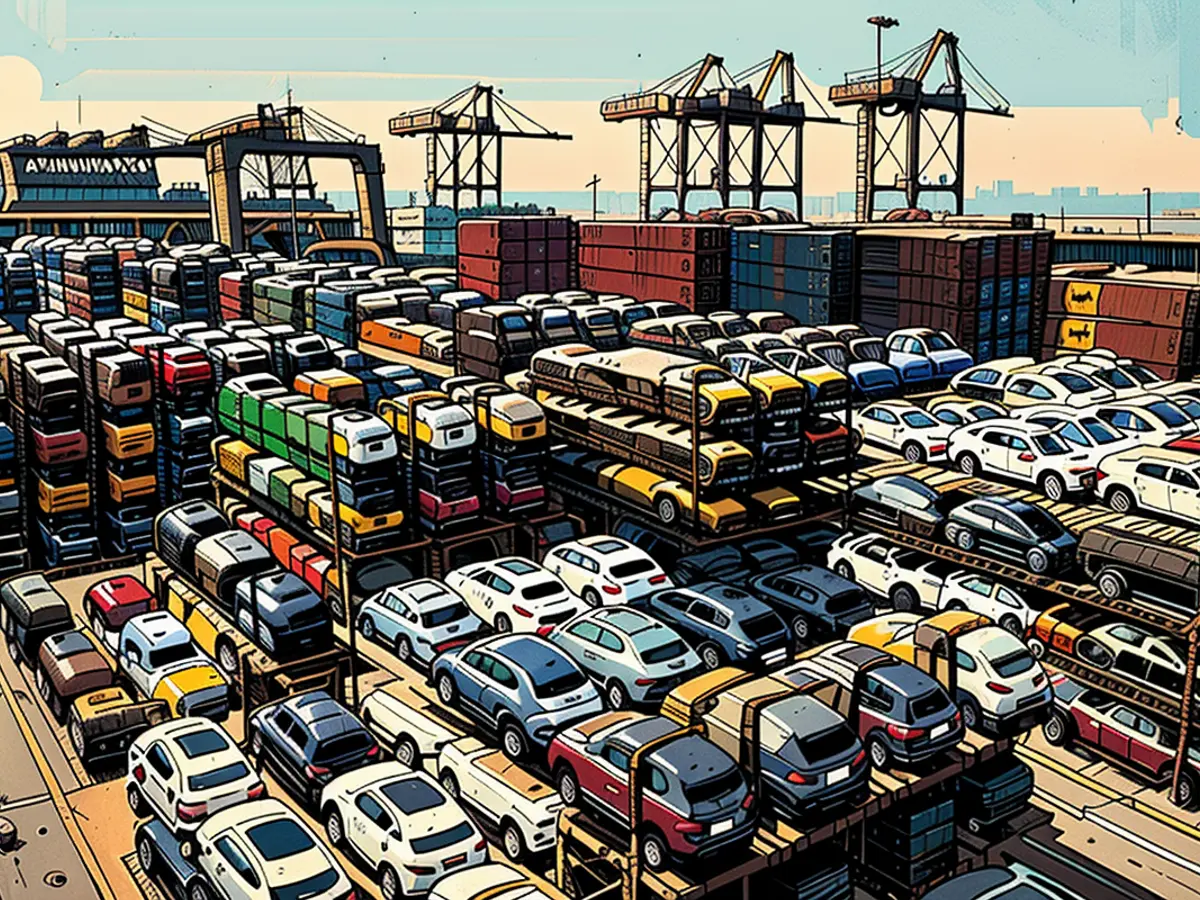Imports of cars from China to the EU will fall significantly after customs duties are imposed
A study suggests that automobile imports from China to the EU will significantly decrease after the introduction of new tariffs on electric vehicles. The Kiel Institute for the World Economy (IfW) predicts a decrease of 42 percent in the study published on Thursday. However, long-term prices for electric cars in Europe will only see minor increases.
The decreasing imports from China will reportedly be balanced out by increased sales from European producers and imports from other countries. Prices for electric cars in China might decrease, while those in Europe could increase by 0.3 to 0.9 percent. In the short term, these effects could be more pronounced, according to the IfW. The study on the tariffs was conducted in collaboration with the Austrian Institute for Economic Research (Wifo) and the Supply Chain Intelligence Institute Austria (ASCII).
The tariffs on electric cars from China took effect on Thursday. The background is allegations that Chinese manufacturers receive extensive subsidies, which comes at the expense of European manufacturers.
"Principally, the EU is reacting correctly with countervailing duties to China's distorting trade practices," explained Wifo Director Gabriel Felbermayr. At the same time, the EU should do everything possible to achieve negotiated results and "escalation spirals" should be avoided, he advised.
Shortly after the EU investigation was announced, the Chinese government initiated an anti-dumping procedure against French brandy. A probe into European pork is currently underway. An introduction of tariffs in this sector would be "unpleasant" - particularly for pig farmers in Denmark, Spain, and Germany - but would have only minor effects on the EU's overall wealth, according to the study.
- Despite the predicted decrease in electric car imports from China to the EU due to new tariffs, the IfW study suggests that European car producers might see an increase in sales to balance the situation.
- The Kiel Institute for the World Economy (IfW) also mentioned in their study that other countries could potentially increase their exports of electric cars to the EU, offsetting some of the decreased imports from China.
- The Austrian Institute for Economic Research (Wifo) and the Supply Chain Intelligence Institute Austria (ASCII) collaborated with the IfW on the study investigating the impact of tariffs on electric car imports from China to the EU.








